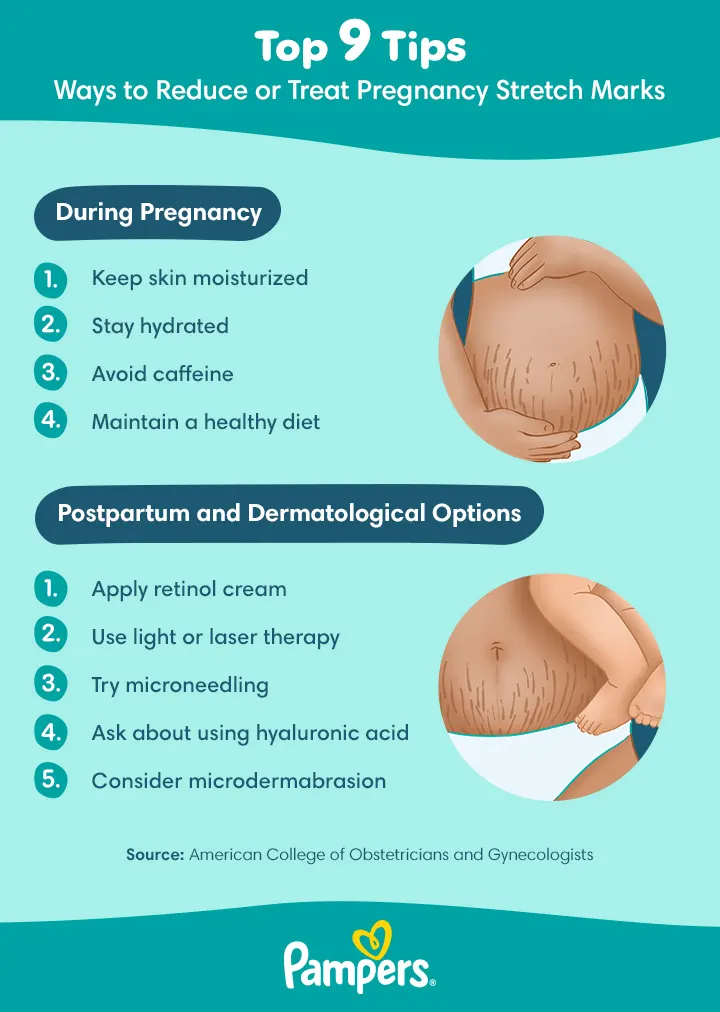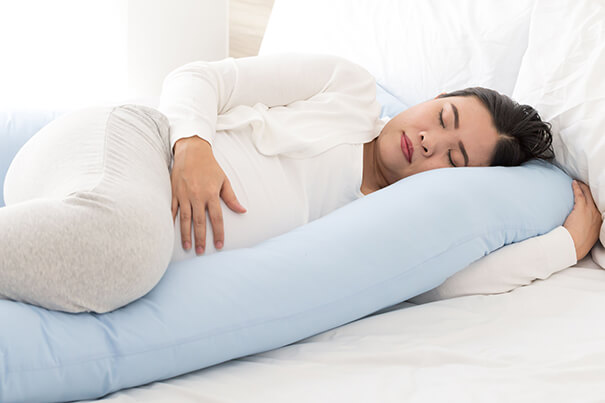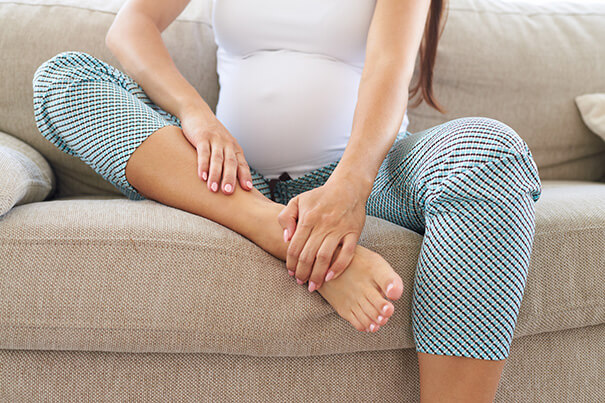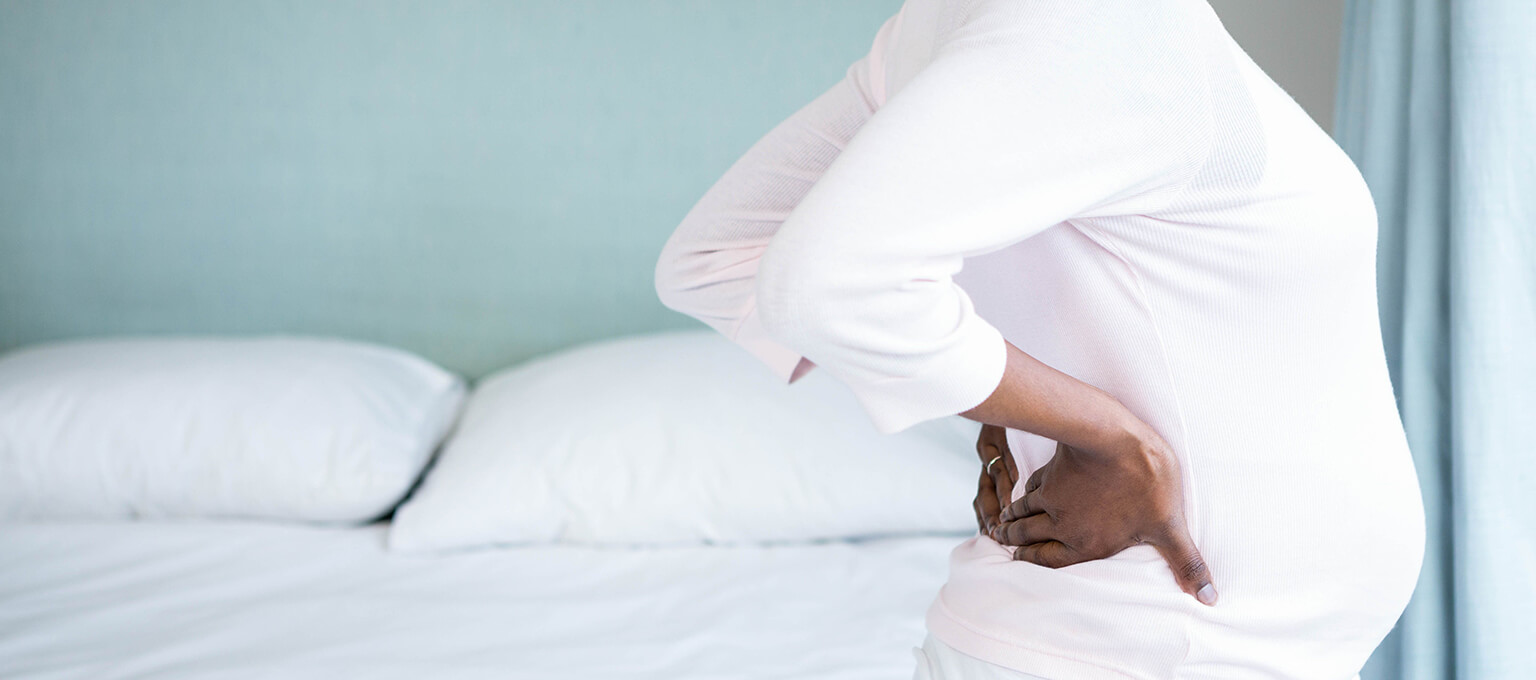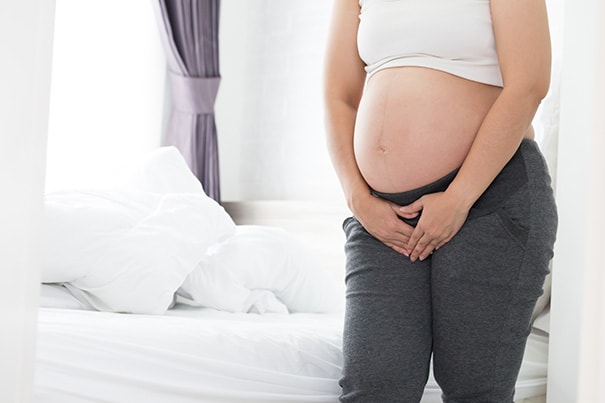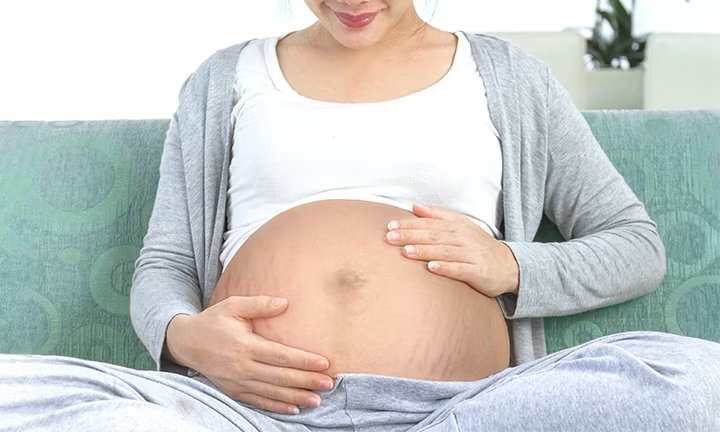
All About Pregnancy Stretch Marks
Most women get stretch marks during pregnancy. They’re a sign that your skin has stretched as your body grows to accommodate your baby. You can’t completely prevent stretch marks from appearing, but there are some things you can do to help reduce the chances of getting them. Plus, don’t worry too much because stretch marks usually fade with time.
What Are Pregnancy Stretch Marks?
Stretch marks look like lines or streaks across the skin that can be pink, red, purple or brown. They usually start off darker and fade over time. The medical term is 'striae gravidarum', which is Latin for ‘stripes of pregnancy’.
Stretch marks typically appear on your tummy, breasts and upper thighs as your pregnancy progresses and your bump starts to grow. They are very common, particularly during pregnancy, affecting around 8 out of 10 pregnant women. Did you know: about 50 percent of women have stretch marks by the time they finish puberty, so you’re definitely not alone!
Whenever your skin is stretched, you are more likely to experience stretch marks. They happen when the middle layer of skin (dermis) is stretched and broken in places.
Hormonal changes experienced during pregnancy can affect your skin and make you more susceptible to get stretch marks.
It’s important to keep in mind that stretch marks are not harmful. They are not known to cause any medical problems and there is no specific treatment for them. Once your baby is born, they will likely gradually fade into paler lines and become less noticeable over time.
BABY NAME GENERATOR TOOL

Baby name generator
By gender:
By theme:
What Causes Stretch Marks During Pregnancy?
Genetics plays a role in whether you get stretch marks, and how visible they are. If you have fair skin, they may be more visible. You are more likely to get them if you are a young mum, if you put on a lot of weight quickly during the pregnancy, or if you are expecting multiples.
You may be more likely to get stretch marks in general if you
Other indicators you may experience stretch marks during pregnancy include if you’ve had these marks before being pregnant, or if other members of your family have them. Changes in hormone levels during pregnancy can also make the skin a little thinner, making some women more susceptible.
When Do Stretch Marks Appear in Pregnancy?
You might be wondering when stretch marks appear during pregnancy, but it is different for every woman. Stretch marks often appear later during pregnancy as the skin stretches as a result of weight gain, and to accommodate the growing baby and uterus. Some women will start to get them in the second trimester, while others may not notice them until the last few weeks of the third trimester. Some women don’t get any at all.
How to Avoid Stretch Marks During Pregnancy
Unfortunately, there is nothing you can do to completely prevent stretch marks during pregnancy, and there’s no miracle stretch mark cream that makes them go away. Here are some ways to help reduce the risk of getting them, and to help soothe any itchy skin:
One of the main ways known to help reduce stretch marks is eating a healthy pregnancy diet rich in vitamins and minerals, particularly vitamin E, vitamin C, and the minerals zinc and silicon – all of which work together to keep your skin healthy.
Is it Possible to Get Rid of Stretch Marks After Pregnancy?
Stretch marks may not disappear completely, but after the pregnancy is over, they can eventually become a less noticeable silver colour. Indulging in a massage might help you relax and feel better, but be mindful of any misleading claims about the ability of any creams, lotions and oils to remove or prevent stretch marks.
That being said, there are certain treatments that can improve the appearance of your stretch marks. But they won’t get rid of them entirely.
These include:
You will need to pay for these treatments yourself as they are not available on the NHS. However, feel free to speak to your GP if you have any questions about these treatments.
Ultimately, it’s not always possible to prevent stretch marks. The best way to reduce your chance of getting them is to maintain a healthy weight.
FAQs at a Glance
After your baby is born, you may notice your stretch marks gradually fading into paler scars and becoming less noticeable. However, they are unlikely to ever fully disappear. You may like to view them as a testament to everything your body achieved when creating a baby!
The Bottom Line
You might be worried about the changes your body goes through as a result of pregnancy, but your body’s doing an incredible job protecting your little one as they get ready to meet the world. These stripes are a testament to all you’ve done.
Pregnancy will cause your body to change in a number of ways. Check out our pregnancy calendar to see what you can expect as your foetus grows in the womb.
Read more about Pregnancy
Related Articles
Join Pampers Club and get:



